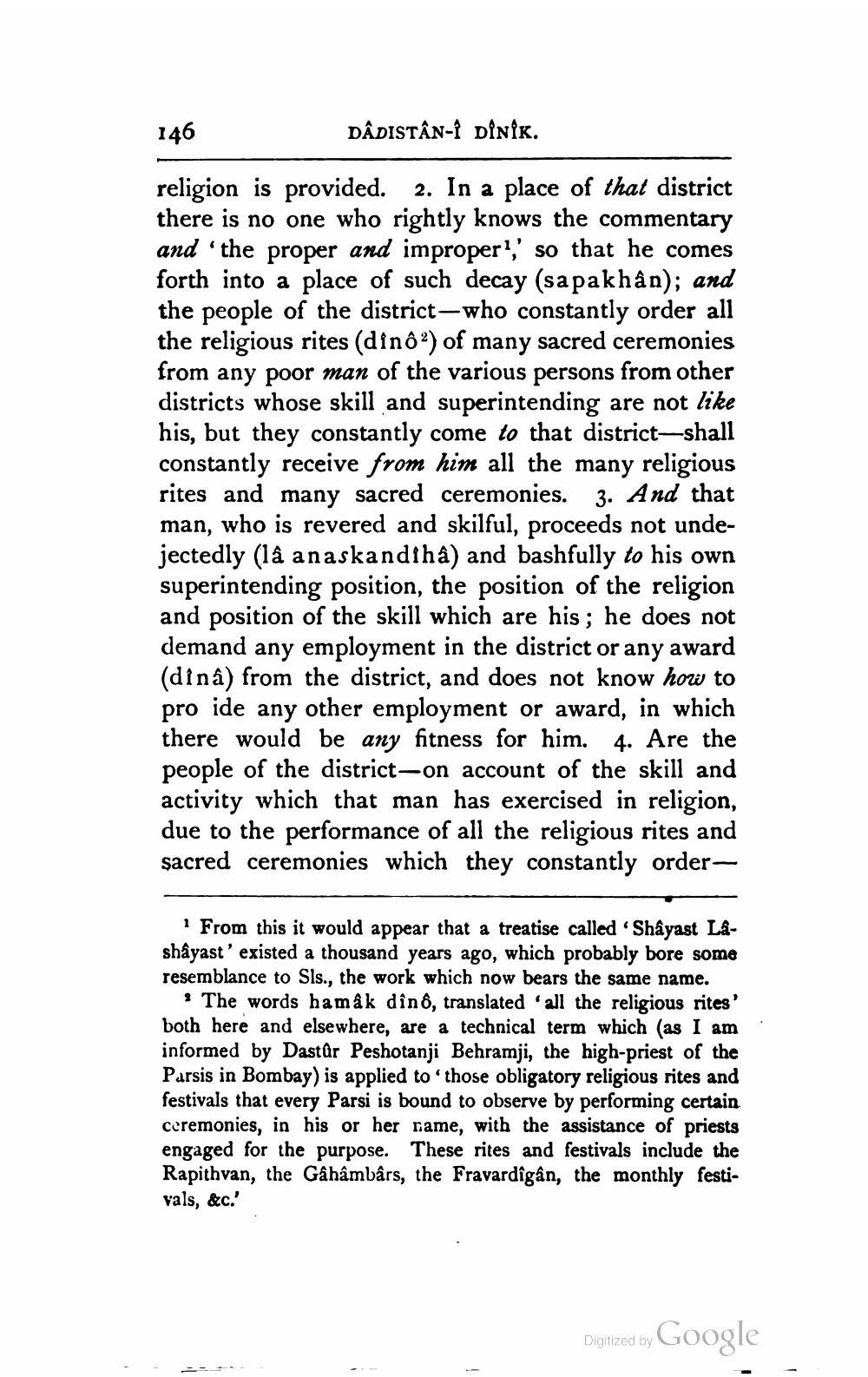________________
146
DÂDISTÂN-Î DÎNÍK.
religion is provided. 2. In a place of that district there is no one who rightly knows the commentary and the proper and improper?,' so that he comes forth into a place of such decay (sa pakhân); and the people of the district,who constantly order all the religious rites (dinô2) of many sacred ceremonies from any poor man of the various persons from other districts whose skill and superintending are not like his, but they constantly come to that district-shall constantly receive from him all the many religious rites and many sacred ceremonies. 3. And that man, who is revered and skilful, proceeds not undejectedly (lâ anaskandihậ) and bashfully to his own superintending position, the position of the religion and position of the skill which are his; he does not demand any employment in the district or any award (dina) from the district, and does not know how to pro ide any other employment or award, in which there would be any fitness for him. 4. Are the people of the district-on account of the skill and activity which that man has exercised in religion, due to the performance of all the religious rites and sacred ceremonies which they constantly order
From this it would appear that a treatise called Shayast Lashayast' existed a thousand years ago, which probably bore some resemblance to Sls., the work which now bears the same name.
? The words hamåk dîno, translated all the religious rites' both here and elsewhere, are a technical term which (as I am informed by Dastûr Peshotanji Behramji, the high-priest of the Parsis in Bombay) is applied to those obligatory religious rites and festivals that every Parsi is bound to observe by performing certain ceremonies, in his or her name, with the assistance of priests engaged for the purpose. These rites and festivals include the Rapithvan, the Gâhâmbârs, the Fravardîgân, the monthly festivals, &c.'
Digitized by Google




